
Lecce Roman Amphitheatre / Another jewel of this town full of
Piazza del Duomo Church of Santi Niccolò e Cataldo Church of San Giovanni Battista The Roman amphitheatre. Lecce (/ ˈ l ɛ tʃ eɪ / Italian: ⓘ) is a city in southern Italy and capital of the province of Lecce, with the second-highest population in the Apulia region. It is on the Salentine Peninsula, at the heel of the Italian Peninsula, and is over two thousand years old.
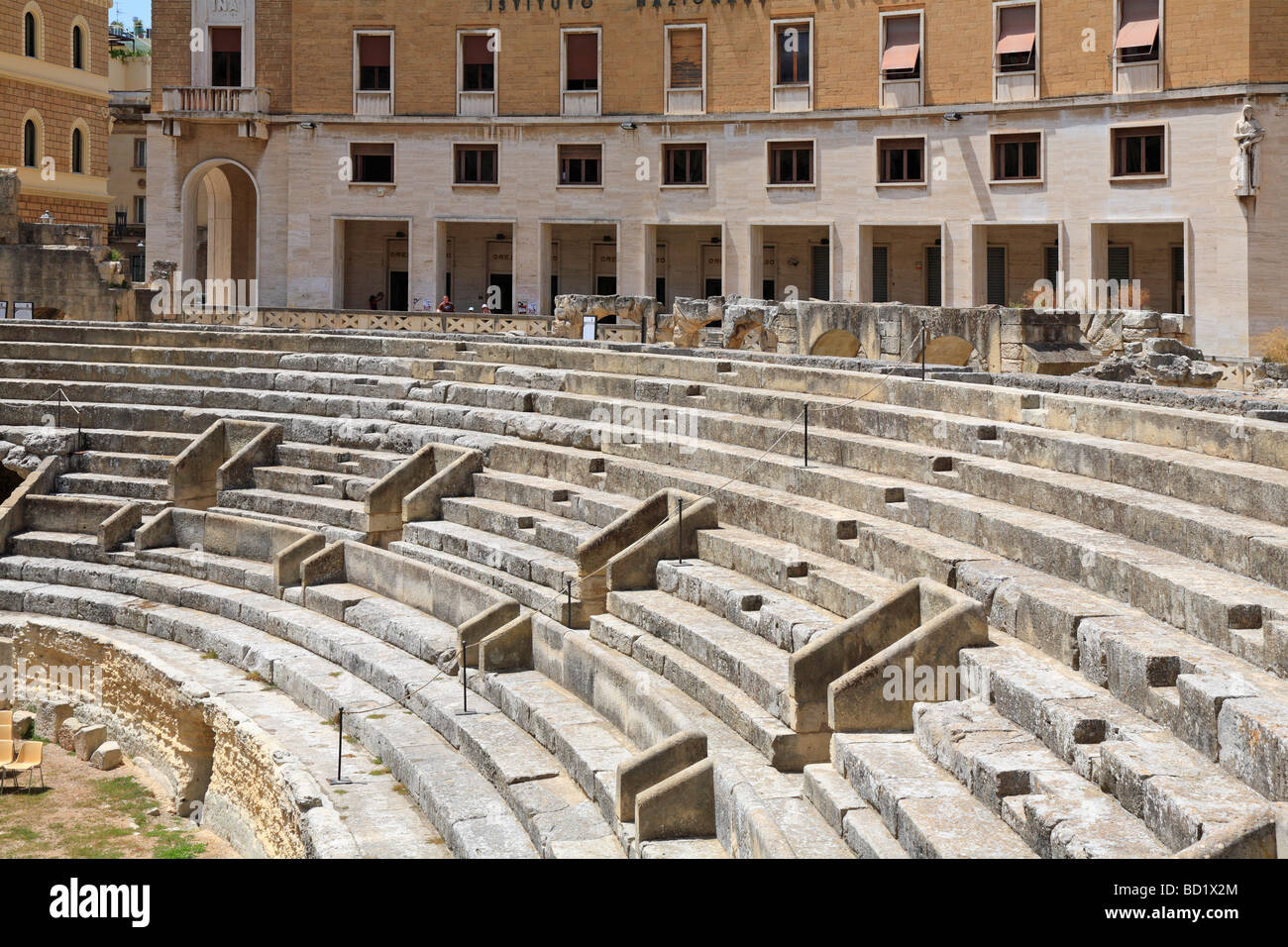
Roman Amphitheatre, Lecce, Puglia, Italy Stock Photo Alamy
The amphitheater is the most important testimony of Lupiae, the ancient name of Lecce, Roman era. It is thought to be dated between the I and the II century AD, between the age of Augustus and the Trajan-Hadrian one. The external volume of the amphitheater was 102 x 83 meters, with an arena of 53 x 34 meters, accommodating about 25,000 spectators!

Roman Amphitheatre of Lecce, Italy Stock Image Image of tourist
The amphitheater is the most important testimony of Lupiae, the ancient name of Lecce, Roman era. It is thought to be dated between the I and the II century AD, between the age of Augustus and the Trajan-Hadrian one. The external volume of the amphitheater was 102 x 83 meters, with an arena of 53 x 34 meters, accommodating about 25,000 spectators!
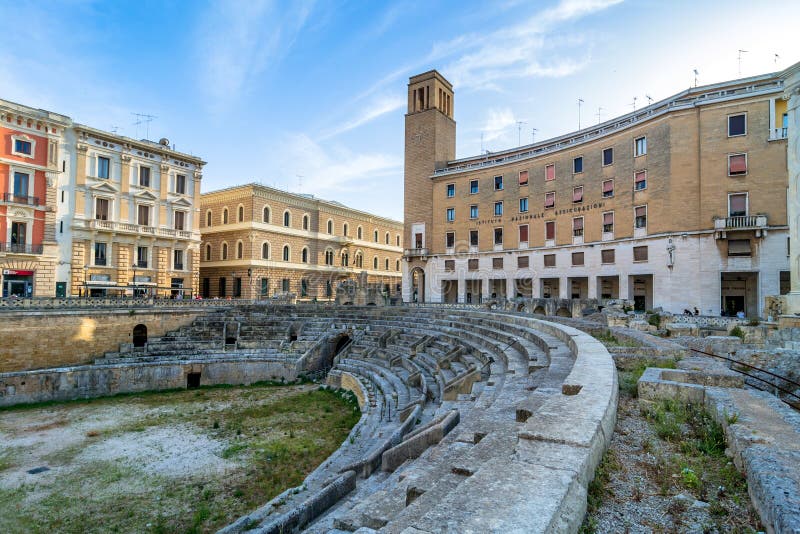
Roman Amphitheatre in Lecce, Italy. Editorial Stock Image Image of
Piazza Sant'Oronzo, 73100 Lecce LE, Italia. +390805285210 Website. Roman Amphitheatre of Lecce, Lecce. Find out the history and all useful information for visiting the monument in Italy.

Roman Amphitheatre of Lecce Italy Review
Sep 2022. This beautifully preserved half an amphitheater is located in downtown Lecce. It is fully visible from the street level, but it cannot be accessed by tourists. That's okay because you can pretty much see everything from the street, Apparently, more of the amphitheater could be excavated, but that's not possible because it would mean.

Roman Amphitheater in Lecce, Expedia
Buried treasure: Lecce's Roman Amphitheater. It isn't exactly rare to find a Roman amphitheatre in Italy, but Lecce's is right in the middle of the old town, brilliantly preserved and incredibly, only rediscovered in 1901. It had been buried by other structures for millennia until a builder digging foundations for a new bank found the.

Roman Amphitheatre. Lecce. La Puglia. L'Italia. Fotografia Stock
Italy, Europe. Lecce. Below the ground level of the piazza is this restored 2nd-century-AD amphitheatre, discovered in 1901 by construction workers. It was excavated in the 1930s to reveal a perfect horseshoe that actually extends under the rest of the square to originally seat 15,000. A little colonised by weeds, it's nonetheless an impressive.
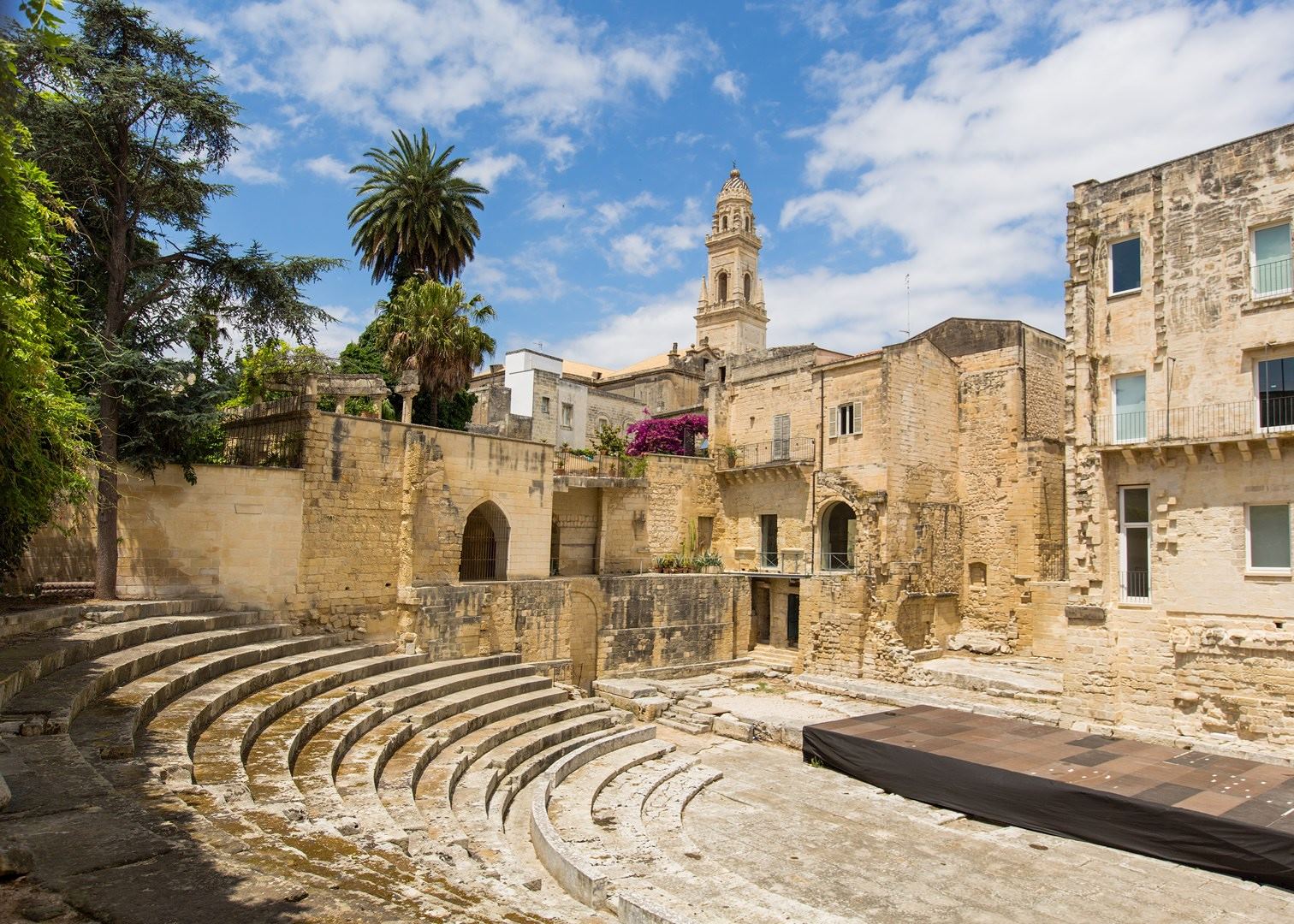
Tailormade vacations to Lecce Audley Travel
Lecce: Roman amphitheatre. Roman amphitheatre in Lecce, Italy. Lecce, city, Puglia (Apulia) regione, southeastern Italy. It lies on the Salentina peninsula, or "heel" of Italy, east of Taranto. Possibly built on the site of the ancient Roman town of Lupiae, Lecce was contested by the Byzantines, Lombards, and Saracens after the fall of the.

Lecce Baroque Architecture, Roman Ruins & Salento Region Britannica
The tour starts with a visit to the majestic Santa Croce Church, the jewel in the crown of Lecce's Baroque architecture. From here, explore the nearby Piazza Sant'Oronzo, the former market square where you can find the Old Town Hall, the Roman Column, and the remains of a huge Roman amphitheater. Continue the tour with a walk through the.
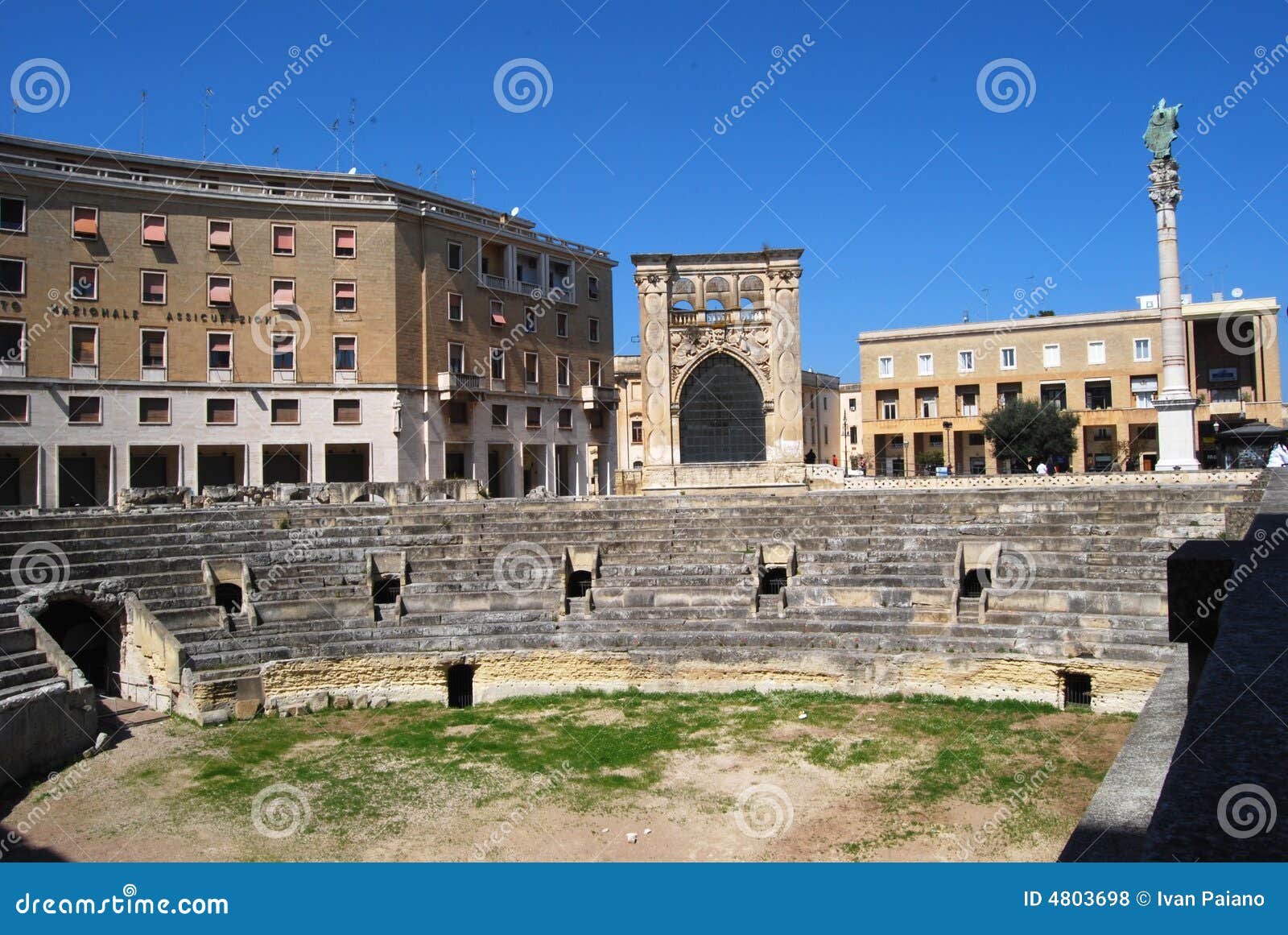
Lecce, roman amphitheatre stock photo. Image of colosseum 4803698
Yes, up till now we have understood that in Lecce besides the beautiful Roman amphitheatre there is also a Roman theatre. The Roman Theatre Perché #lecce non si fa mancare proprio niente: oltre a un anfiteatro c'è anche un #teatro, sempre romano ~ grazie al Museo del Teatro Romano per avermi fatto scattare questa foto!
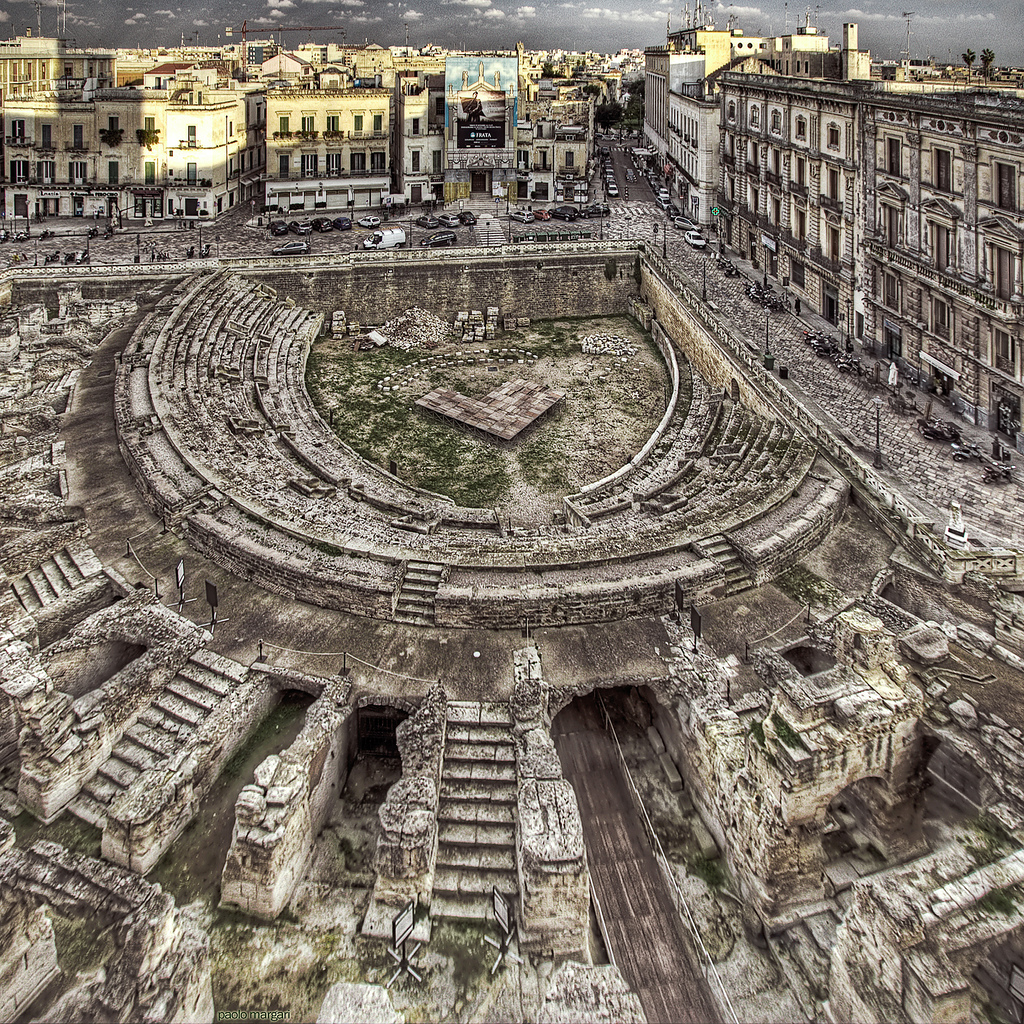
Guide to Puglia where to visit, what to eat, and traditional dishes
Roman Amphitheatre. The unique feature of the Piazza Sant'Oronzoi is the Roman Amphitheatre. The remains of this huge structure were uncovered only about 100 years ago, when the new Banca d'Italia building's foundations were being dug; and the site was only properly excavated after 1945, with about half of it now exposed to view, the rest.

Roman Amphitheatre Of Lecce Stock Photo Download Image Now
The Lecce 2nd Century Roman Amphitheater, is located at the St. Oronzo Main Square near the statue of Lecce's patron Saint: St. Oronzo and the Tourist Information office. Check with the tourist office for a free city map and a calendar of events held in this ancient amphitheater not to be confused with Lecce's Romano Theatre. Although the.
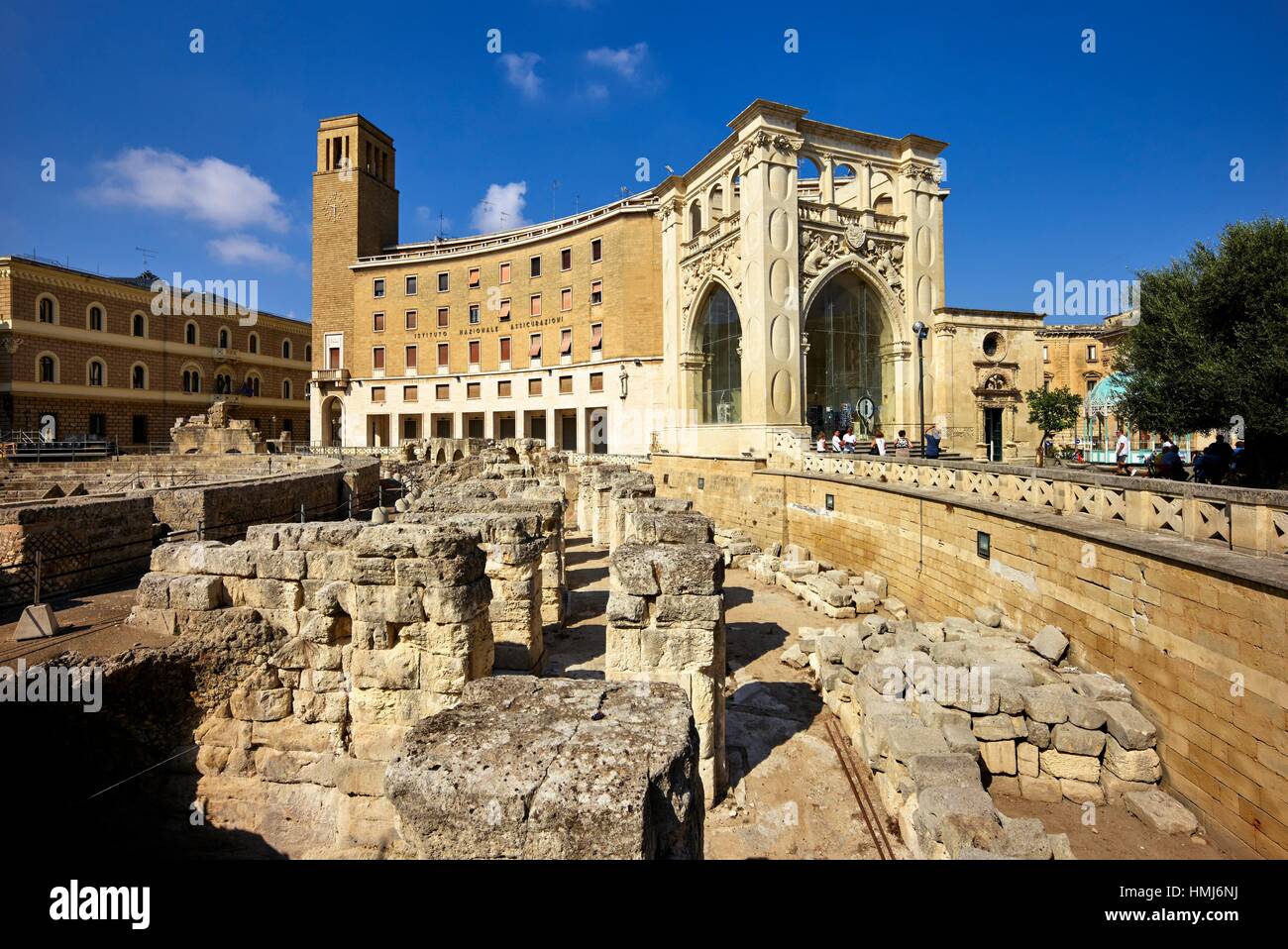
The Roman Amphitheatre. Lecce, Apulia, Italy Stock Photo 133166142 Alamy
The Roman Amphitheatre in Lecce, also known as the Anfiteatro Romano, is a fascinating historical site located in the heart of Lecce, a beautiful city in the region of Apulia, Italy. This ancient amphitheater is a remarkable example of Roman architecture and an important archaeological site in the city. History: The Roman Amphitheatre in Lecce.
Ancient and new the Roman amphitheatre in Lecce, Puglia region, Italy
The Roman amphitheatre of Lecce dates back to the second century AD and the time of Emperor Hadrian's rule. Featuring an elliptical layout, it's partly buried and partly supported by arcades resting on tuff columns. The amphitheatre of ancient Lupiae lies on what once were the eastern outskirts of the Roman city of Augustan Age, and was capable.
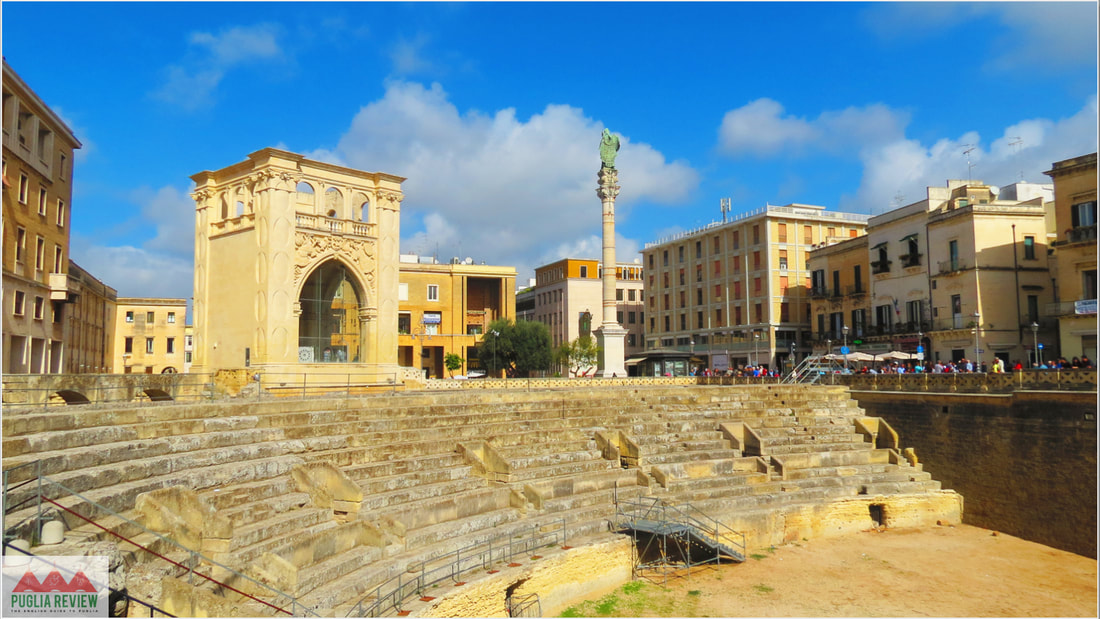
Roman Amphitheatre of Lecce Italy Review
The Roman amphitheater of Lecce is situated in the main piazza of the old town. Even more interesting, it was completely hidden from view and its existence unknown until as recently as 1901. The.

Roman Amphitheatre In Lecce Puglia Southern Italy Stock Photo
Lecce is known for its 17th-century Baroque beauty, but the city's history stretches back to the Roman empire. Nowhere is this legacy more evident than in Lecce's Piazza Sant'Oronzo, where theLecce Roman Amphitheatre (Anfiteatro Romano di Lecce) from the second century BC is still used today for performances.